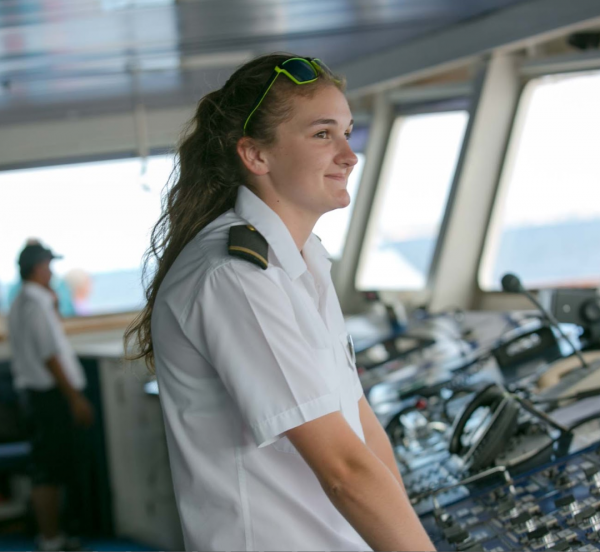Where should funding come from?
Unlike the merchant sector, current superyacht cadetships are not supported by the industry they seek to serve…
Last week, SuperyachtNews announced that Falmouth Marine School is launching a cadetship for engineers, due to hit the market in 2019. The new scheme will join the likes of the Warsash and UKSA deck cadetships that are currently available for the superyacht industry. While these cadetships have proven to be an effective way of bringing professionally-trained and career-minded candidates onto superyachts, surprisingly one of the hardest things for the organisers of these programmes is garnering industry support.
A lack of such support seems mystifying given that the demand for such candidates on superyachts is well documented. In a recent interview with The Superyacht Report, the owner of 37m sailing yacht Escapade admits that crew are the biggest handicap to superyacht ownership. He feels that there are not enough properly trained crew and believes that the sector too often promotes the notion of ‘on-the-job’ learning, which he cautions is not enough.
“There need to be mandatory apprenticeships before working on board a superyacht,” this owner advises. “In Switzerland, for example, you have to do at least a three-year apprenticeship if you want to become a baker. So why are crew being allowed to work on million-dollar assets without a three-year apprenticeship as a minimum? Crew are in charge of very high-value assets and there should be more focus on apprenticeships because the current situation just doesn’t work. It is an industry where people are the least professionally trained to work with the most valuable assets – it doesn’t make sense.”
Cadetships, therefore, are essentially the answer to this owner’s pleas. But for Emma Baggett, business development manager at Falmouth Marine School and former cadetship manager at UKSA, the biggest challenge is finding the funding to help young people access training in the first place. During her career, she has found that many incredibly young and able people simply do not have the means to afford even basic training for the superyacht industry.
Unlike the merchant sector, the current superyacht cadetship courses are not supported financially by the industry that they seek to serve and instead rely on the support of UK maritime charities. The support from organisations such as Trinity House and Seafarers UK has been responsible for many young people being given the opportunity to forge successful careers. While these maritime charities have made a big cultural step to support the superyacht industry – having traditionally been solely focused on the Merchant Navy – they are still very vocal about their irritation that the superyacht industry is not supporting its own.
“For me, it is a fundamental necessity for there to be a complete change in the way the yacht sector looks at this,” Baggett implores. “In an expanding industry, with statistics that clearly demonstrate the need for increased numbers of experienced and skilled crew to meet the demands of the new builds scheduled over the next five years, there needs to be an active initiative to contribute towards attracting and supporting young people into meeting this shortfall.”
And the support required does not stop at financial assistance. One of the most important issues for the success of the cadetships is that the yachts employing cadets follow through on the promise to allow them the time off to return to school to complete the training. “There is no doubt that it is challenging for the 40m to 60m sector, both power and sail, as boats of this size are not always able to offer rotation and can’t let crew go for extended periods, however supportive of the concept of the scheme they are,” Baggett acknowledges. “But it is essential for the industry to embrace it.”
With the new engineering cadetship, Falmouth Marine School aims to work with industry partners to provide entry-level funding, alongside the availability of student loans to eliminate any barriers to young people wishing to enrol on the course. But, just as importantly, it will continue to work towards gaining the support of the yachting community itself.
The superyacht industry seems to be guilty of simply expecting new crew to turn up each year, and doesn’t fully realise the need to support crew from the very start. The industry tends to have a very cynical view of training providers, but it is organisations such as Falmouth Marine School, UKSA and Warsash that are actually going out and finding the funding to enable young people to access the industry, while the yachts are the ones that benefit. Surely more owners, management companies and recruitment agents should be investing in the initiatives from which they can take advantage?
Image: Warsash cadet Lotty Astbury on the bridge of MSY Wind Surf
We delve into more detail on superyacht cadetships in Issue 82 of The Crew Report. Pick up your copy at the Monaco Yacht Show, at stand QE9, or download your complimentary copy now.
Profile links
Click here to become part of The Superyacht Group community, and join us in our mission to make this industry accessible to all, and prosperous for the long-term. We are offering access to the superyacht industry’s most comprehensive and longstanding archive of business-critical information, as well as a comprehensive, real-time superyacht fleet database, for just £10 per month, because we are One Industry with One Mission. Sign up here.




